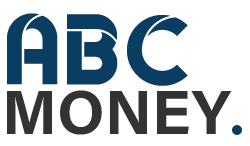If you’re contemplating purchasing an investment property, you would know that it is a rewarding source of passive income. However, financing an investment home loan in Brisbane has some key considerations, which can be different from financing for a primary residence. Investment property mortgages have some additional steps compared to primary residence mortgages; they may also incur higher interest rates and require additional borrower security compared to taking a mortgage on a primary place of residence.
Before we get into the details of what you need to know about investment property loans, let’s review what the term ‘investment property’ means.
Simply put, investment property refers to a property you purchased as a financial investment. You may have purchased with the objective of renting out the residence, or to ‘flip’ it.
‘Flipping’ a home refers to the process by which investors buy a property in a fast-expanding area with the purpose of subsequently selling it for a profit, typically they will make repairs or completely renovate to boost its value in a short period of time.
Difference between A Regular Home Loan And Investment Loan
Investment loans are specifically curated to cater to the purpose of investing. These loans typically follow the same structure and options as a regular home loan, but as investment loans can come with a higher risk for lenders they may also have additional fees and higher interest rates.
When your loan application is assessed, the expected rental income is taken into consideration for your serviceability, or repayment schedule. It is worth noting that the assessment process for serviceability may be a bit stricter for investment loans. That is, the lender may be more conservative in their assessment of your ability to repay your loan.
Purchasing an investment property is usually part of a long-term plan to build wealth. Understanding your financial goals means that your mortgage broker can work with you to tailor the most suitable strategy for financing your property investment plan. Your goals and other financial considerations, such as any equity you are using against the loan, can influence the ideal method to arrange your loan facilities. Depending on what you want to achieve and what options are available, your strategy may take into consideration the benefits of different repayment structures such as fixed rate, variable rate, interest-only or split loans.
Advantages and Disadvantages of Investment Property
An investment property is a considerable financial decision, and it is best to be informed of the advantages and disadvantages of purchasing an investment property.
Here are a few advantages of Investment Property Loans:
- Growth Potential: Market expansion and housing price appreciation
- Returns: These are derived from rental income.
- Tax Deductions: You may be eligible to deduct property costs from your taxable income.
- Equity: The ability to use your investment’s equity to acquire more properties.
Here are a few disadvantages of investment property loans:
- Liquidity: The cash worth of your property is more difficult to acquire, and selling can be time-consuming (and costly)
- Vacancy: There is a possibility that your property may remain unoccupied, which means no returns will be made for a lengthy period of time.
- Cost: Upfront charges, such as investment stamp duties, might be prohibitively expensive.
Making Informed Decisions
There are a few things you should look at before applying for an investment loan:
Credit History
Lenders typically want to see proof of your ability to repay your loan. Which means a solid credit rating is important, because. When the lender evaluates your application, they will evaluate any arrears and overdraws.
Employment
Lenders prefer candidates who have a consistent work role and sector, as well as decent employment history and reliable income. If your employment has changed in a short period of time, lenders will look at the gap between your current employment and your previous work situations in their assessment of your ability to repay the loan.
Loan-to-Value Ratio (LVR)
LVR relates to the amount of equity you have vs the amount you need to borrow. The greater your down payment, the lower your LVR. Lenders like a low LVR, so save as much as possible!
Power of Borrowing
Your borrowing capacity is determined by your income, less your costs. Calculate your monthly disposable income to obtain an estimate of your borrowing ability.
Fees and Ongoing Expenses
Investment properties, as previously stated, may attract a higher interest rate, resulting in greater continuing keeping expenses. Furthermore, investment property fees and maybe land tax might be incurred, so make sure you account for this in your planning.
The Property
Because the lender will be using the property as security, complete appraisals will be performed on the property to assess the risk to the bank. As a result, looking at houses that aren’t regarded as liveable or are in desperate need of repairs may influence the lender’s decision to accept the property as collateral.
There are a number of ways to structure your investment property loan. Property investments can be profitable, but like any investment it is recommended that you do your research, and if you are unsure, chat to an expert before committing to a purchase.
Your mortgage broker in Brisbane can help you when you’re ready to start looking at rates, loan options and putting together a budget that suits your financial goals.
As a final tip, seeing if you’re pre qualified for an investment property mortgage when you start your search can save you time and streamline your investment loan search.

